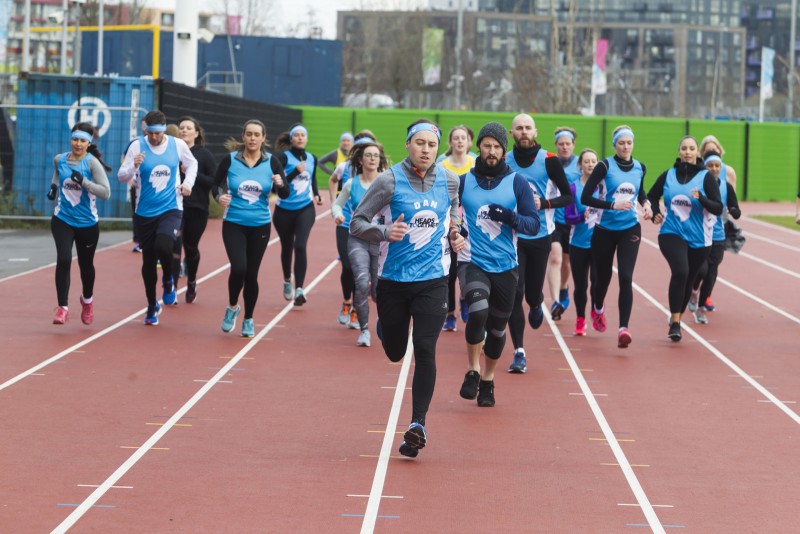We are now well into the new year and the key weeks of your marathon preparation are just around the corner. In order to arrive in March feeling strong and confident the next few weeks are all about progressing your training whilst ensuring you respect your recovery. Here’s Tom’s top tips for February:

Build it up
The longer run becomes a more central feature in your training through February and the key to success is making sure these progressions are sustainable.
Try this – Avoid the temptation to just run your long runs as hard as you can for that week’s distance, week by week you’ll build too much fatigue and find it increasingly hard to recover from these sessions. The majority of your long run should still be at a relaxed and conversational effort, for more experienced runs this might be 30-60 seconds a mile slower than marathon pace.
https://www.youtube.com/watch?v=TpTk_h0cqLA&index=51&list=UUsQpuVH0M0TpYdVKDdApZ1Q
Timed recovery
As some of your runs get harder your focus on your recovery strategies also needs to develop. Ensuring you refuel quickly after your long runs and faster sessions will see you adapting better to your training and feeling stronger 2-3 days later and make healthier food choices later in the day.
Try this – A drink with a sensible balance of carbohydrate and protein, such as High5 Protein Recovery or a self-made smoothie with 3-4 parts carbohydrate to 1 part protein should be taken on within 15-30 minutes of your key hard sessions and long runs.
Up the quality
Too many runners rely solely on their long run to get fit of the marathon. A weekly threshold session over the next 4 weeks will add as much to your fitness and training as your weekly long run.
Try this: Add blocks running at an effort where you can only speak 3-4 words at a time into a 40-50 minute mid week run. Start with 4 sets of 6 minutes with a 75-90 second easy recovery, and build over the following weeks to 5 x 5 minutes, 5 x 6 minutes and 3 x 10 minutes.
https://www.youtube.com/watch?v=vjeWUAVkVtY&list=UUsQpuVH0M0TpYdVKDdApZ1Q&index=48
Hit the sack
Consistent, good quality sleep allows your body to release the hormones you need in order to adapt to all those hard miles. We have all heard about the magical 8 hours sleep but in reality whilst getting more sleep can be useful, the quality of your sleep is just as important.
Try this – Improve the consistency of your sleep by aiming to get to bed at similar times each night, making sure your environment is dark and cool with the use of blackout blinds if needed, avoiding alcohol and caffeine late at night and not using smart phones or laptops in the final 60-90 minutes before bed.
https://www.youtube.com/watch?v=9sxaaViJ4SQ&list=UUsQpuVH0M0TpYdVKDdApZ1Q&index=53
Get cross
Runners can sometimes fall into the trap of thinking that the only way to get fit for a marathon is to run. Cross training includes non running activities that still work your heart and lungs and they can be hugely valuable to allow you to continue progressing your training if injured or by adding additional volume to your running training.
Try this – Aqua-jogging is just about the most specific form of running cross training your can do. Essentially it involves running in the deep end of a pool, often using a buoyancy belt to support good posture. Including short efforts of 3-5 minutes with a short 30-60 second recovery will help keep your heart rate up to get maximum value.
https://www.youtube.com/watch?v=Cb_z9faGcT4&index=40&list=UUsQpuVH0M0TpYdVKDdApZ1Q
Remember if you need any more help with your training, you can find our running guide and training plans here.
